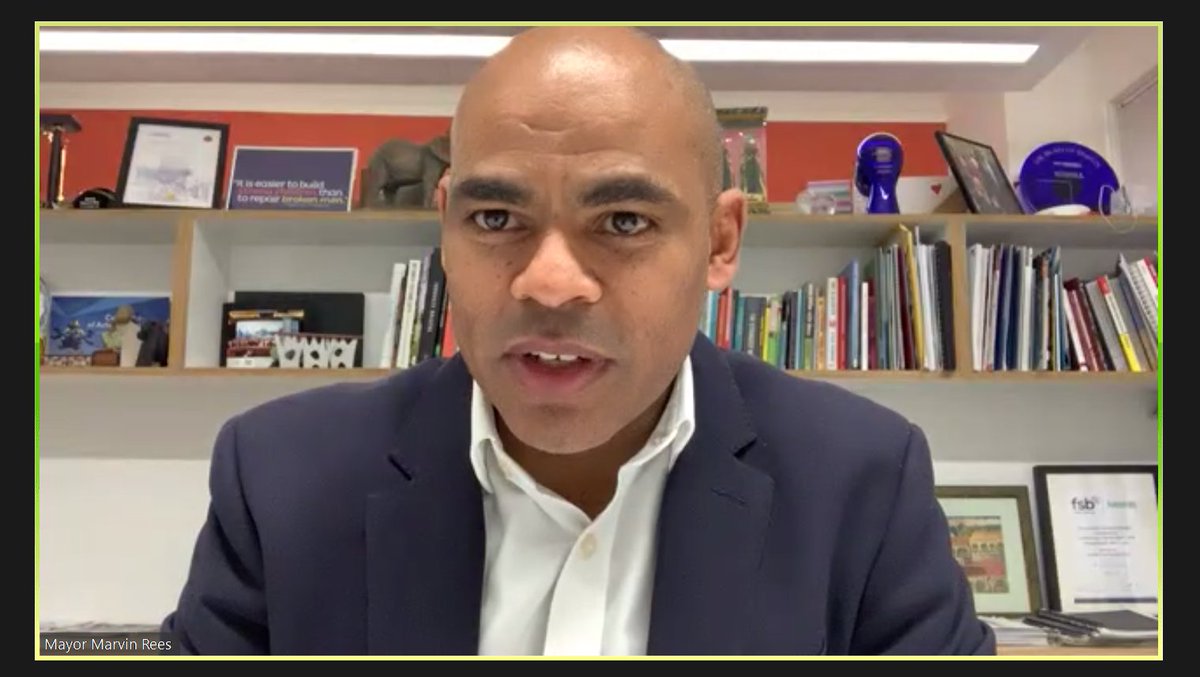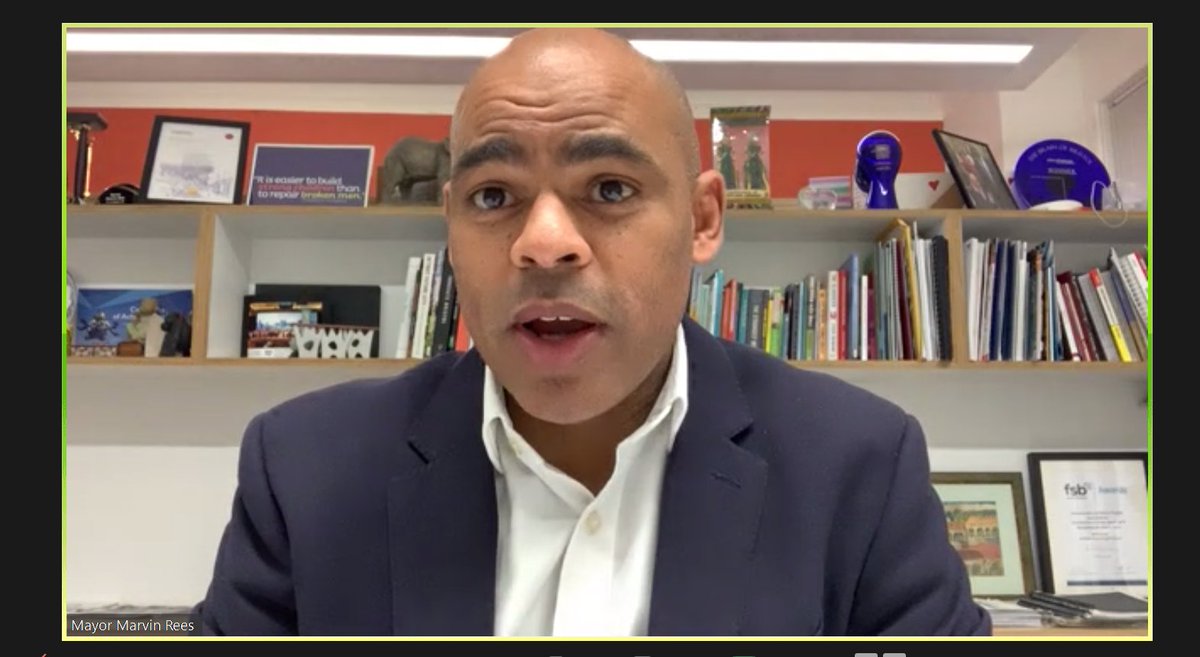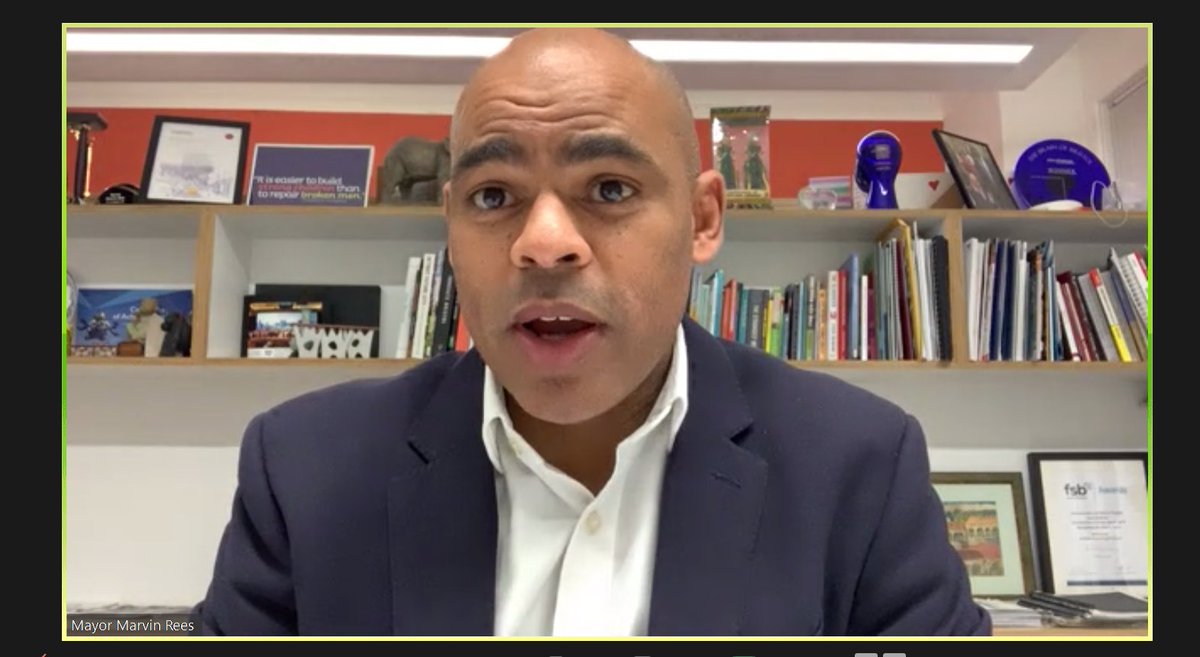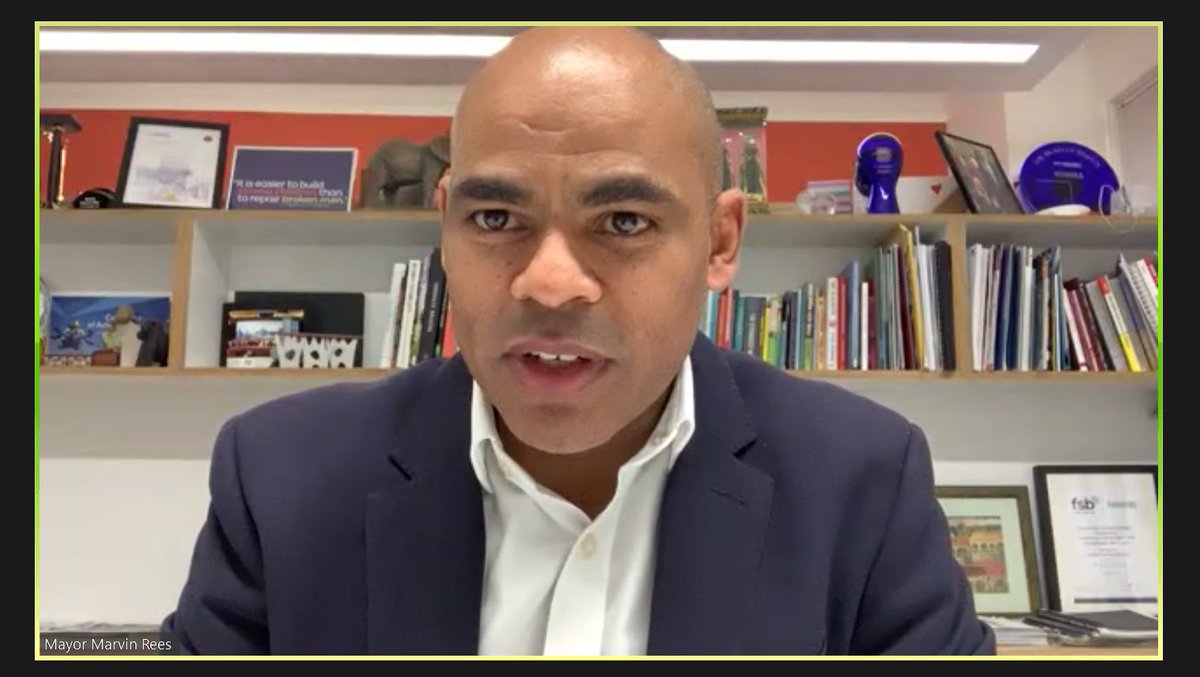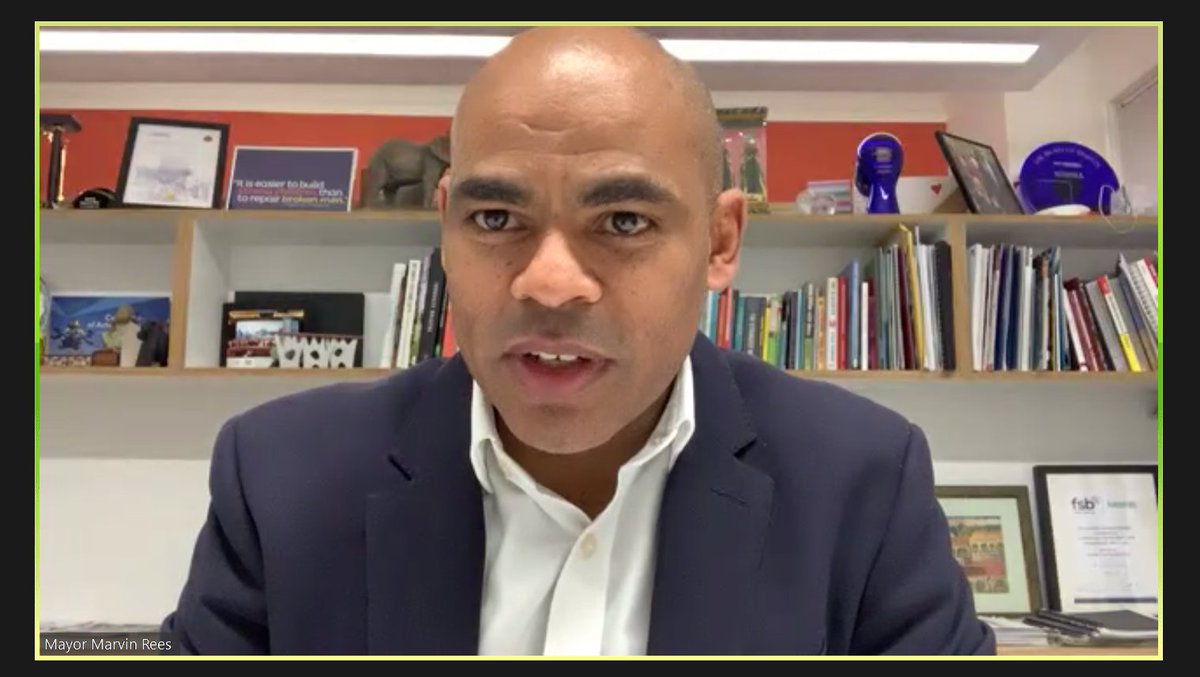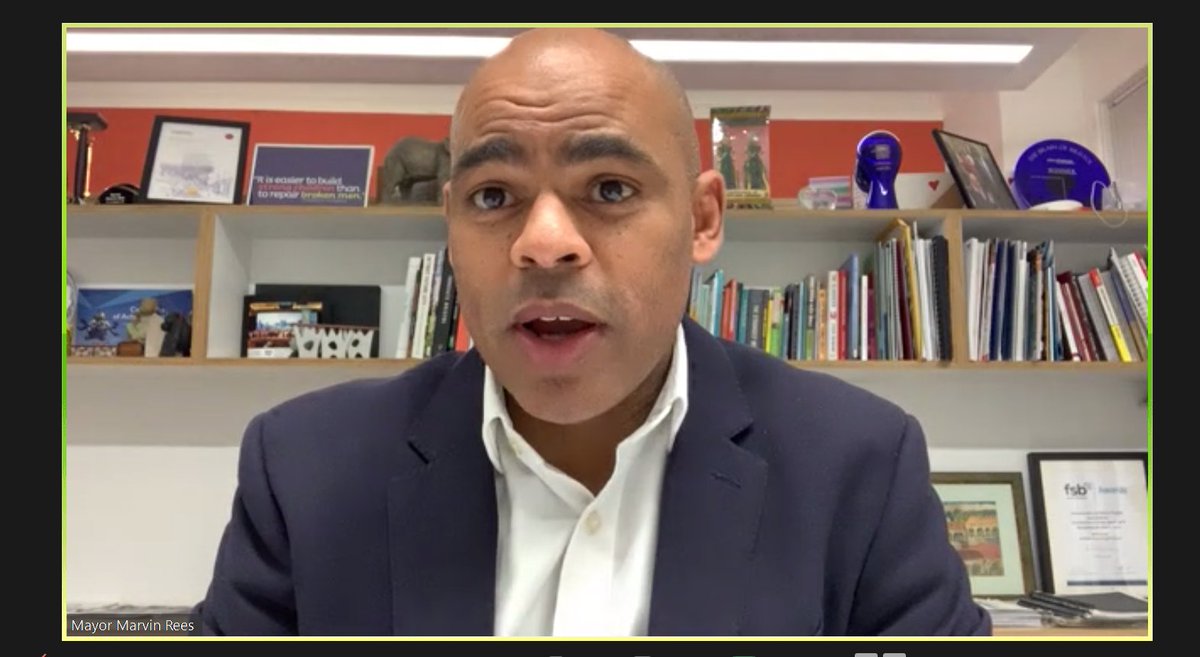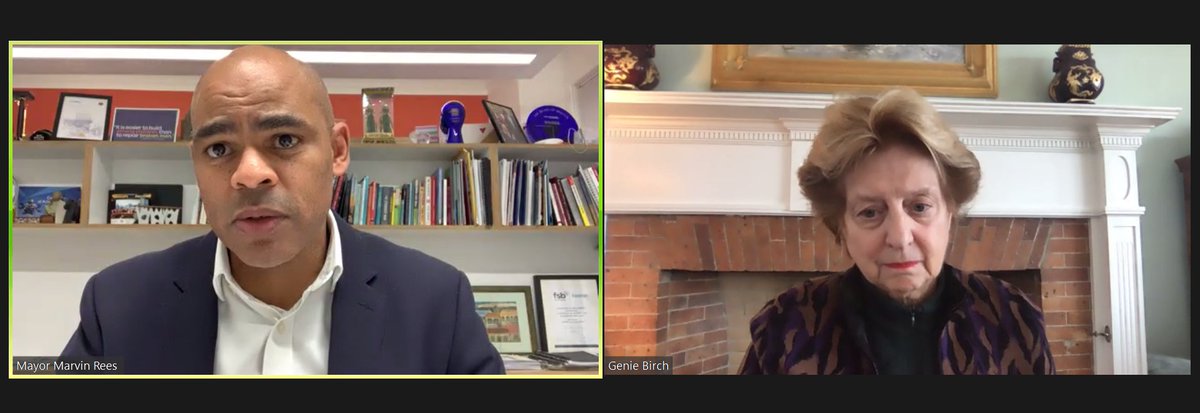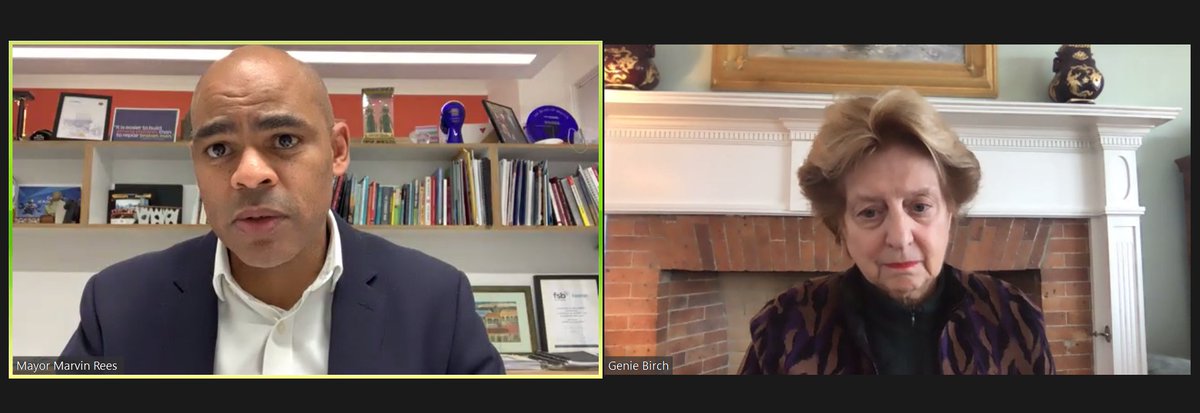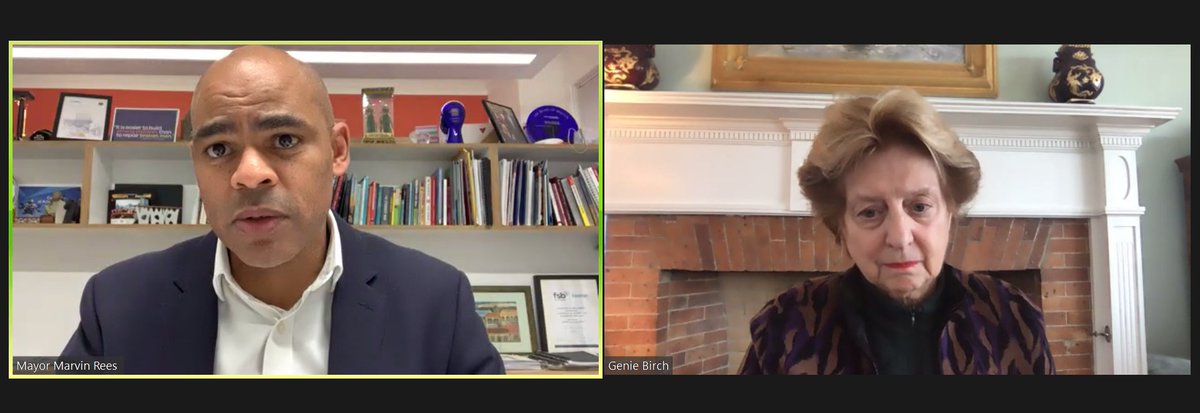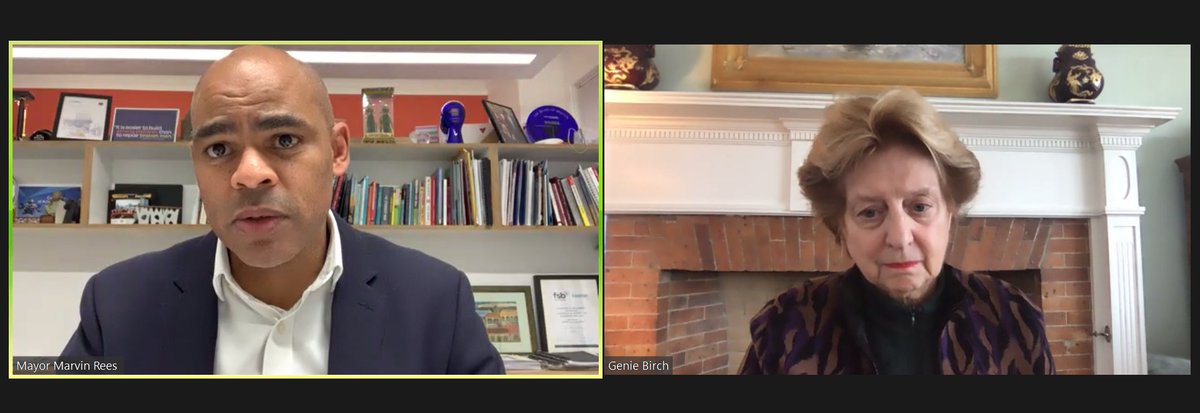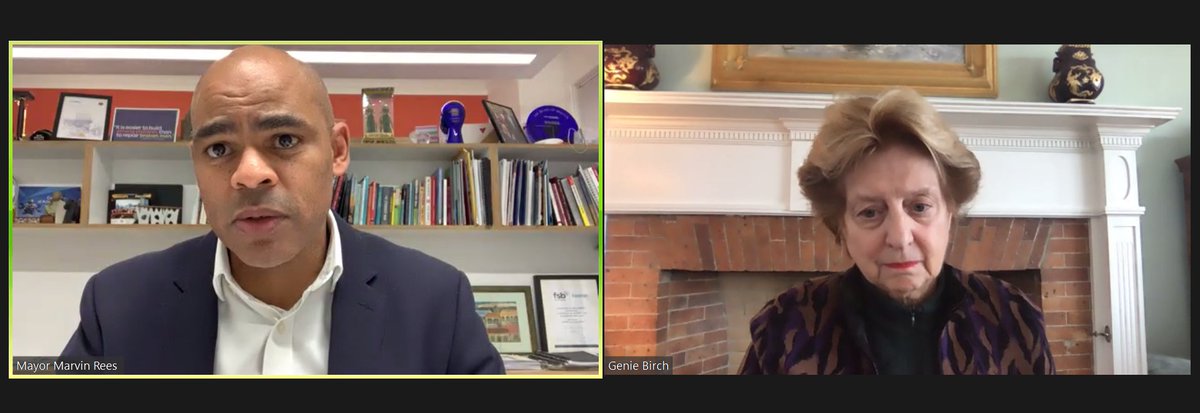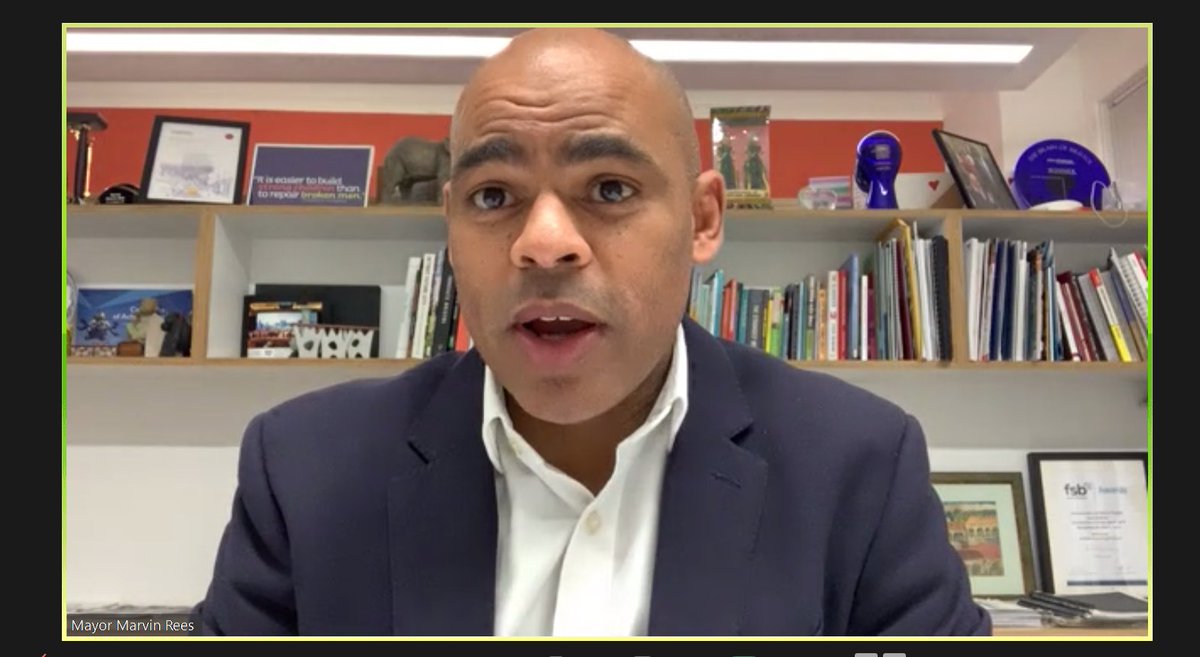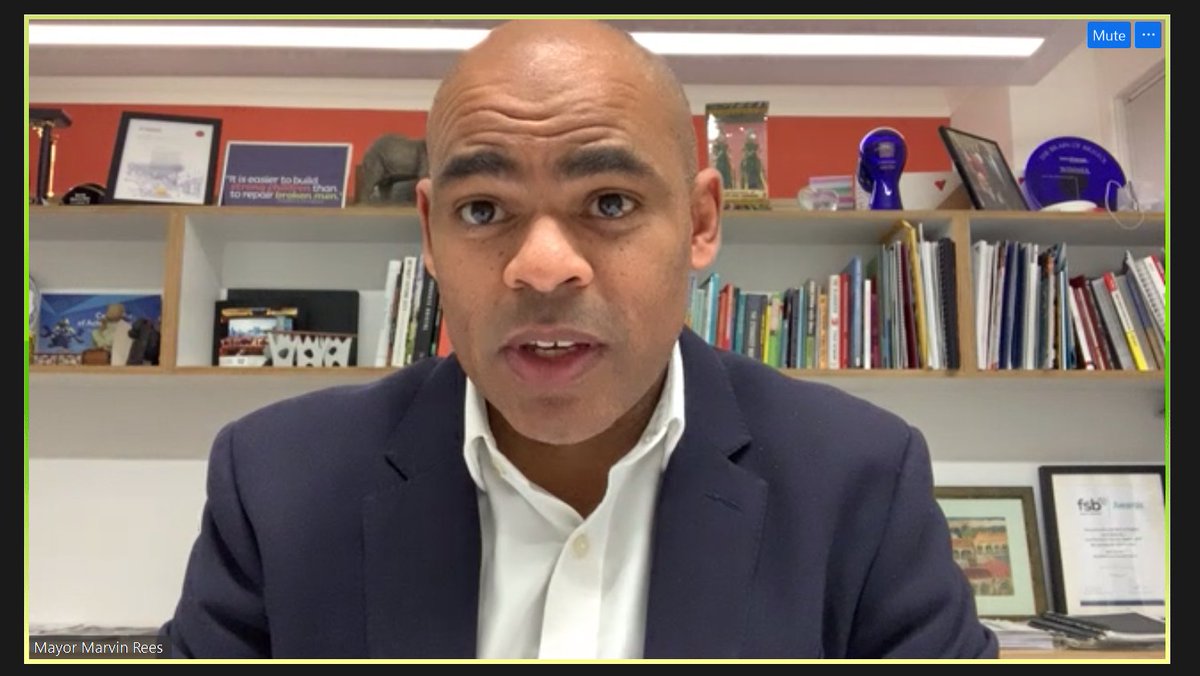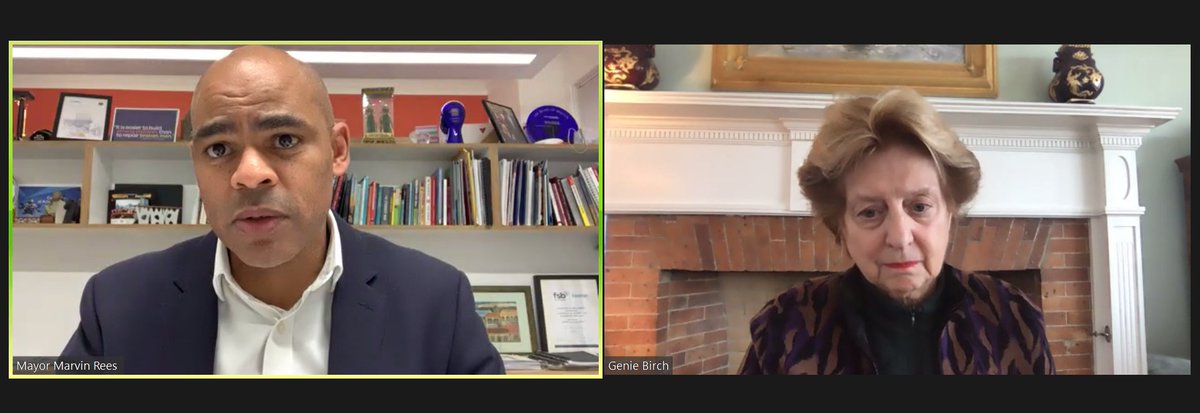We& #39;re starting our event with @MarvinJRees, Mayor of Bristol, UK, talking about role of cities on the world stage. Mayor Rees talks about his own time living in Philadelphia and the US, and Bristol& #39;s connections to Philly, with founder William Penn& #39;s father buried in the city.
"I didn& #39;t come into office with an international agenda, but I soon came to the conclusion that we need to move global governance into its next iteration - with cities working as equal partners to manage global policy."
"Some thoughts I& #39;ll offer - we need that governance to change because of what cities are; most people now live in cities. And cities are international - in Bristol, we speak 92 languages and have 45 religions. What& #39;s happening in Nigeria or Pakistan is of immediate concern."
"National governments are increasingly distanced from the people; cities have a better understanding of on-the-ground realities. We are at the center of major issues like climate change and migration. We need to be treated as equal partners in global governance structure."
How do we get national governments to take cities seriously? "I& #39;ve just given evidence to a parliamentary committee on this here in the UK," says @MarvinJRees. National government has a lot to do, it actually really needs cities to pick up the slack."
"Leadership of US mayors needs to be recognized by the incoming admin. But there are 3 other sources of potential change - one is cities themselves, which are organizing themselves into networks. We& #39;ll have Brexit this year, but we& #39;re still connected to Europe with EuroCities."
"Secondly, businesses need to raise their voice here. They need open borders, working from city to city an facilitate trade and business. And thirdly, supranational orgs like the World Bank need to consult with cities directly."
. @Genie_Birch moves to Bristol in the UK& #39;s second lockdown. "Cooperation in the city has been reasonable, although there is increasing frustration with national govt. But at the city level, there& #39;s trust - I live here, my kids go to local schools, so we& #39;re in it together."
"Our message has been that we know this is difficult. The economic impacts are very significant for us. We have to deal with the virus, but the consequences are severe -health is often determined by socio-economic elements, and we& #39;ve seen unemployment grow massively."
"It& #39;s a brutal time, but we& #39;ve used this Biblical proverb a lot - we don& #39;t despise our sufferings because they produce perseverance; perseverance, character; and character, hope. And we have seen that here - our citizens volunteering, helping each other. "
What will the permanent impact of lockdown look like? "The status quo has shown itself remarkably adaptable and resilient through many crises - despite some change with major events like WW2, the 2008 crisis, issues with the system remain."
"We need to build back better and reinvent what we are and what we do, and reduce the likelihood of future shocks. But whether that will happen, I don& #39;t know."
Is COVID severely impacting city finances? "It& #39;s like trying to make bricks without straw. The UK is one of the most centralized countries in Europe when it comes to finance and policymaking. We& #39;re calculating a huge hit in our budget, with reduced revenues and increased need."
What about Bristol& #39;s One City Plan? "The Plan still stands, because we want to be an inclusive, sustainable city where everyone shares in our success. But the Plan is refreshed and rewritten every year, and in 2020, it will be refreshed in the light of COVID."
Learn more about Bristol& #39;s One City Plan here: https://www.bristolonecity.com/ ">https://www.bristolonecity.com/">...
"I& #39;ve built the Plan working with partners all over the city, meeting weekly to find interdependencies we share and working together to do positive things for our city. The idea is that it will be a longer-term view for the city& #39;s development that transcends the election cycle."
How do you manage tensions between different residents and their needs? "I went to a public meeting where there was disagreement about building new housing in an affluent part of the city. When I& #39;m faced with that, I look at how we can come to agreement on the challenge we face."
"I asked them - do we all agree we have a housing crisis in this city? Yes, all agree. We agree it& #39;s not right to have 12k people on the waiting list for housing, inc children and families - yes. So the next challenge is meeting that housing crisis in a climate emergency. Yes."
"We need to build in a sustainable location. Yes. So what are the tradeoffs? It& #39;s a challenging, complex world, there& #39;s a price to pay for everything. If you disagree with my solution, what is yours? Because that will also have consequences."
How did Mayor Rees start his career? "My first plan was to join Royal Marines, then serve as an MP. But my eyesight wasn’t up to it! So I started working in development. I was always interested in politics, I worked with Operation Black Vote, but didn’t know how to get into it."
"When I returned to Bristol from studying at Yale, we& #39;d held a referendum on having a mayor. A friend of mine said I should go for it. I applied for selection, won it, and the rocket took off! I lost in 2012, but I ran again in 2016 and won that time."
How does Bristol gain from being active on global stage? "It happens independent of us – a third of the world’s natural history broadcasting comes through Bristol; we’ve always been trading int& #39;lly. But there& #39;s been real reputational benefit from working with our city partners."
"We’ve had a voice on trade, migration, and that’s enhanced our ability to speak to our national government. We have that authority that comes from genuinely interacting with global partners. We’ve also fostered links with other cities, opening channels for connectivity."
How do mayors and city leaders network and share best practices? "We do network, but I’m always wary of best practices – when I see a good project, I often ask first, how much did it cost? Fundamentally, we need more money. It’s a challenge I’ve taken to WEF and C40."
"We need to bring mayors together and put them in a room with major funders to discuss options, because the difference between Bristol and a decarbonized transit system is £4bn. If we had that money, we’d do it."
"We have pulled together initial exploratory discussions for a financial vehicle that could work with the city of Bristol over 15-20 years to replan and rebuild. We’re getting that together, then sharing it with groups like C40, WEF, to catch their interest."
What& #39;s the hardest thing about being mayor? "We& #39;re constantly on a shrinking budget every year. But with a heavy burden - like with people who experience discrimination thorough their life - you acclimatize to it. But it would be remarkable to be in a world with more investment."
"The hard thing for me personally is the political debate. It’s superficial, social media-ized, one dimensional, making an evil out of the enemy. I’m not building houses to destroy communities, I’m doing it to solve a housing crisis. People don& #39;t think about the challenges."
Thanks for following our coverage of today& #39;s discussion with @MarvinJRees and @Genie_Birch! Don& #39;t miss our next event on Glasgow and the COP26 climate conference: https://www.eventbrite.com/e/129912189857 ">https://www.eventbrite.com/e/1299121...

 Read on Twitter
Read on Twitter